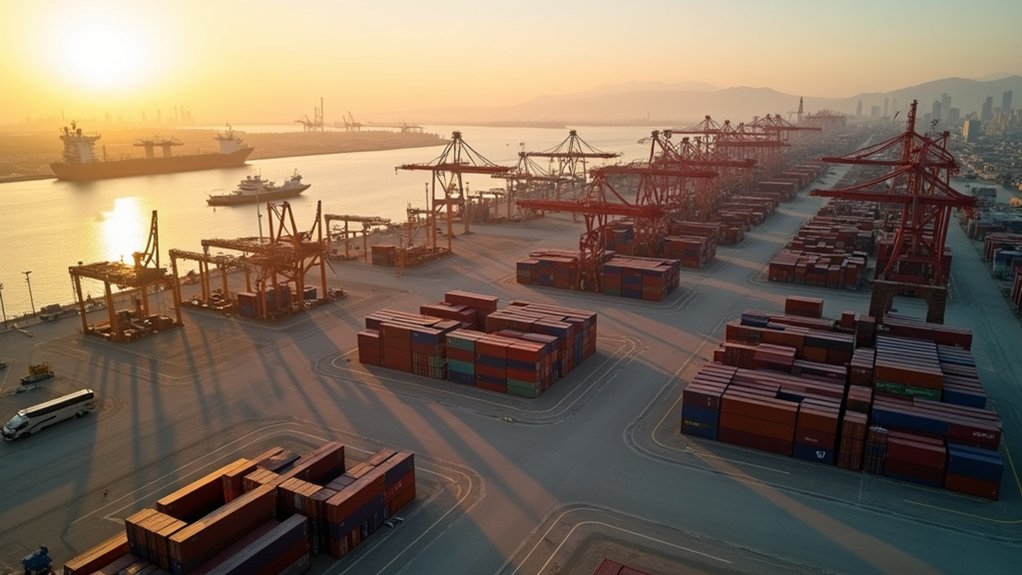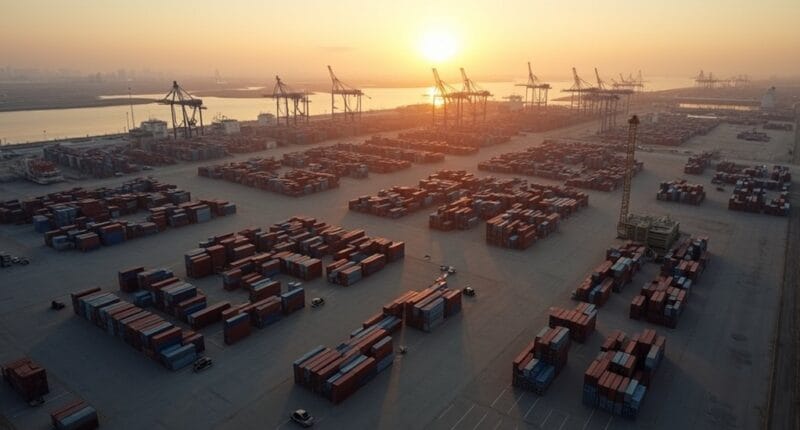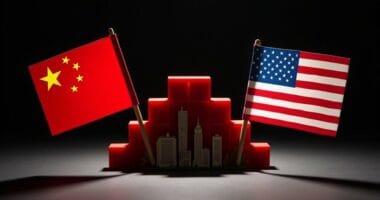The Port of Los Angeles is taking a brutal hit, with container volumes nosediving 30% in early May 2025. U.S.-China trade tensions and hefty tariffs are wreaking havoc on America’s busiest port, despite a desperate 90-day truce attempt. Major retailers have halted Chinese shipments, warehouse demand has tanked, and consumer prices are climbing. Port officials warn this shipping collapse is just the opening act of a much bigger economic drama.

The Port of Los Angeles is taking a massive hit. Container volumes plunged 30% in the first week of May 2025, as the latest round of U.S. import tariffs walloped trade flows. It’s a dramatic reversal from just months earlier, when cargo volumes had surged 14% in Q1 as panicked companies rushed to stockpile inventory before the tariffs kicked in.
The numbers tell a brutal story. With 45% of the port’s business tied to China, major retailers have simply stopped shipping from the manufacturing giant. Some tried pivoting to Southeast Asia for its lower 10% tariffs, but those alternative routes can’t begin to fill the void. By mid-May, Asian cargo volumes are expected to crater 35% compared to last year. A 90-day tariff truce announced on May 14th did little to restore shipping confidence.
Major retailers abandon Chinese shipping as tariffs bite, while Southeast Asian alternatives fail to compensate for plummeting cargo volumes.
Here’s the kicker – that brief 5% import spike in April? Pure desperation. Companies were frantically front-loading shipments before the hammer dropped on April 2nd. Now warehouses that were bursting at the seams are starting to empty out, with no replenishment in sight. Once these pre-tariff inventories run dry, consumers might find themselves staring at some mighty empty store shelves.
The pain isn’t confined to the docks. Los Angeles County’s industrial real estate and warehousing sectors are feeling the squeeze as port activity grinds down. Demand for bonded warehouses initially exploded as companies scrambled to delay tariff payments, but that bubble burst when shipments dried up. Now the whole supply chain is in limbo. The decline has severely impacted four congressional districts that heavily depend on port operations.
The economic ripples are spreading nationwide, and nobody’s quite sure what to do about it. Companies lack solid backup plans for their China-sourced goods, and the uncertainty has everyone frozen in place. Consumer prices are climbing as businesses pass along those tariff costs.
Meanwhile, port officials are left stating the obvious – this 30-35% collapse in shipments is just the beginning of what could be a very long and painful trade war. Sometimes the truth hurts. And right now, it’s hurting pretty bad.





